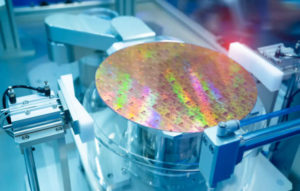These days it seems like every high-tech business is moving to Texas. Now, there is a possibility that Samsung will build up to eleven new chip-making facilities in the state. Jiyoung Sohn reports in The Wall Street Journal:
Samsung Electronics Co. has floated the prospect of investing nearly $200 billion for 11 new chip-making plants in Texas over the next two decades, a mega splurge that if executed would dramatically boost its semiconductor foothold in the U.S.
The South Korean tech giant’s proposed spending was divulged in recent filings submitted to the Texas Comptroller’s office and made public Wednesday. One likely motivation is a year-end expiration of a Texas state incentive program offering property tax breaks for 10 years for large investments.
The filings don’t commit Samsung to invest. The Suwon, South Korea-based company doesn’t currently have specific plans to pursue the new factories outlined in the filings, a Samsung spokeswoman said. The spending proposals reflect the company’s long-term planning process to evaluate the viability of further U.S. expansion, she added.
Samsung’s potentially eye-popping spending comes as U.S. lawmakers weigh more than $50 billion in subsidies to boost American-based chip production and research. Details of the legislation need to be resolved, though the bipartisan bill cleared a procedural hurdle on Tuesday. Much of the world’s chip production has shifted to Asia in recent decades.
The slow progress on the U.S. chip subsidies has prompted some semiconductor giants to stall tens of billions of dollars in potential factory projects. Intel Corp. recently said it would move more cautiously on its factory plans without government incentives and delayed a groundbreaking ceremony for a planned multibillion-dollar chip manufacturing facility in Ohio.
Samsung currently operates chip-production factories at three locations in South Korea, two in Austin, Texas, and two in China. The company dominates in memory chips, while it harbors big aspirations for its contract chip-making business.
Read more here.

